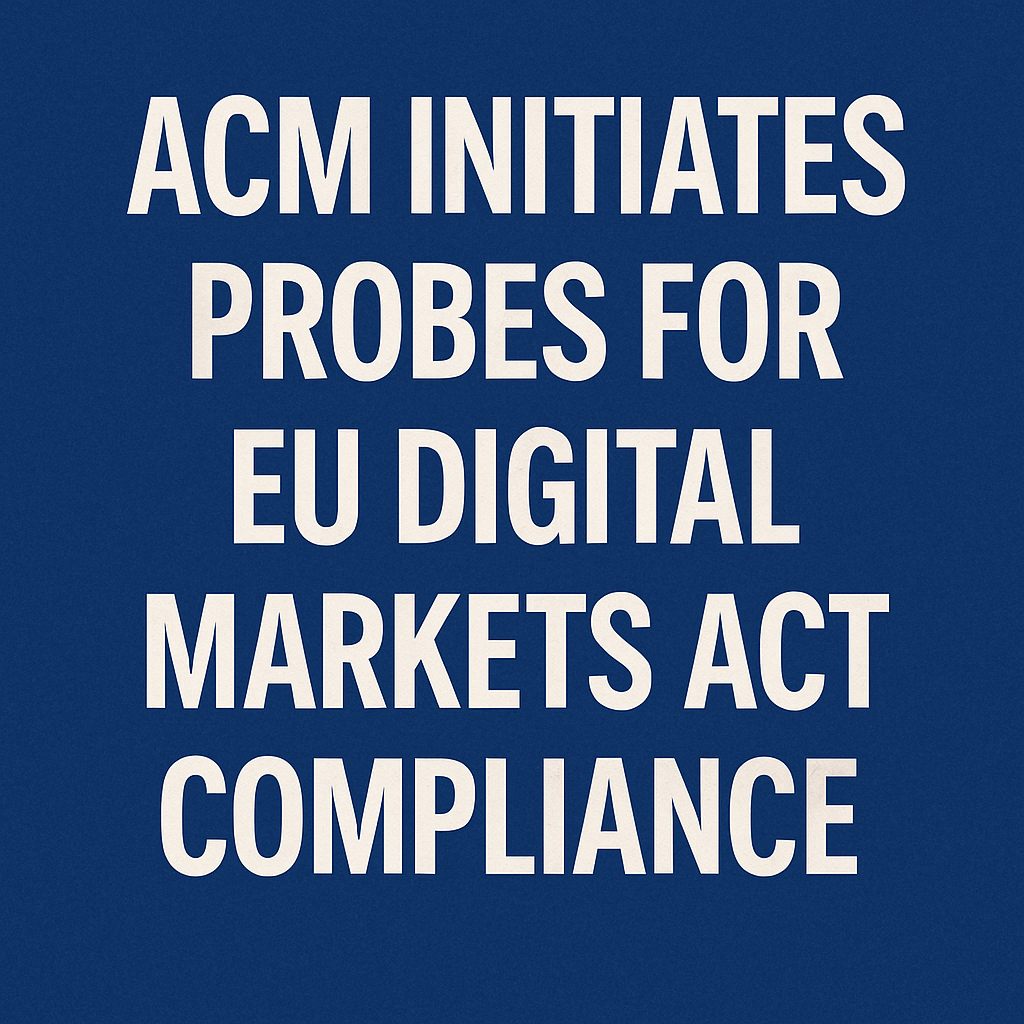ACM Initiates Probes for EU Digital Markets Act Compliance

The Dutch Consumer and Markets Authority (ACM) has initiated two formal investigations to assess whether major international technology firms are adhering to the European Union’s Digital Markets Act (DMA). Announced in its 2025 enforcement plan, these probes are part of a coordinated effort with the European Commission to uphold fair competition in digital markets.
Coordination with the European Commission
Under the DMA framework, national regulators can gather evidence and conduct fact-finding missions, but only the European Commission holds the authority to impose binding remedies or financial penalties. An EU spokesperson told Euronews that “national agencies may investigate cases under the DMA, but they must report findings to the Commission, which decides on follow-up measures.”
Background on the Digital Markets Act
Applicable since May 2023, the DMA targets so-called “gatekeepers”—companies that meet objective thresholds including:
- Over 45 million monthly active end users in the EU
- At least €7.5 billion in annual EU turnover or a market capitalization of €75 billion globally
- Operating a core platform service (e.g., app stores, search engines) for at least three years
In September 2023, six firms were designated as gatekeepers—Alphabet, Amazon, Apple, ByteDance, Meta, Microsoft—with Booking.com added in 2024. They must comply with specific obligations on interoperability, data portability, self-preferencing and ad transparency, among others.
Recent Enforcement Actions and Fines
On April 23, 2024, the Commission levied fines of €500 million on Apple and €200 million on Meta for breaches of the DMA’s rules on steering and consent mechanisms. Apple was found to prevent developers from directing users to alternative payment channels, while Meta’s dual “pay or consent” ad model was deemed coercive.
Implications for Gatekeeper Strategies
- Revenue Streams: Firms may need to revise app-store fees and in-app purchase rules to allow sideloading or third-party payment systems.
- Data Access: Gatekeepers must grant business users access to anonymized service data for analytics and campaign measurement.
- Interoperability: Messaging and social networking services must interoperate with rival platforms upon request.
Technical and Regulatory Challenges
- Ensuring secure API endpoints for third-party developers without compromising user privacy.
- Building audit logs and compliance dashboards capable of real-time monitoring.
- Verifying data portability processes under GDPR and DMA simultaneously.
Global Context and Comparative Analysis
- United States: The proposed American Innovation and Choice Online Act mirrors DMA objectives but remains in legislative debate.
- United Kingdom: The Digital Markets Unit (DMU) employs a lighter “pro-competition” regime targeting fewer firms.
Expert Opinion
“The DMA represents the most ambitious antitrust regime globally. National enforcers like the ACM must now develop technical expertise to audit complex platform algorithms,” says Dr. Elena Martínez, professor of EU competition law at Leiden University.
Since March 10, 2024, the ACM has been empowered to enforce DMA compliance in the Netherlands and remains the country’s lead authority under both the DMA and the Digital Services Act (DSA), which governs illegal content online. Martijn Snoep, ACM’s president, indicated in a December interview that priority DSA investigations could soon extend to major hosting providers.